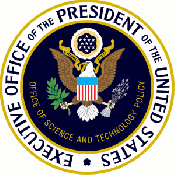News
Pronatalism is an old idea with roots in eugenics and nationalism, that is now fashionable among far-right influencers and policymakers. They talk...
This is the 10th installment in the Legacies of Eugenics series, which features essays by leading thinkers devoted to exploring...

The White House Office of Science and Technology Policy (OSTP) released “A Note on Genome Editing” yesterday, a week after the National Academies announced “a major initiative to guide decision making about controversial new research involving human gene editing.”
The Center for Genetics and Society (CGS) welcomes the precautionary approach reflected in OSTP’s statement that the “Administration believes that altering the human germline for clinical purposes is a line that should not be crossed at this time.”
CGS has called for the United States to join the dozens of other countries that have adopted laws explicitly prohibiting the creation of genetically modified human beings. “The endorsement of a pause by the White House is an important first step," said CGS Executive Director Marcy Darnovsky, PhD.
“The creation of genetically modified human beings, like the use of cloning for human reproduction, would constitute dangerous and unnecessary biological experimentation on another human’s body, with profound consequences for the social fabric of humanity,” Darnovsky added.
CGS points to the precedent set by President Obama when in March 2009 he lifted the previous Administration’s restrictions on embryonic stem cell research and drew a clear line between acceptable and unacceptable applications of human biotechnology. He promised to “develop strict guidelines, which we will rigorously enforce, because we cannot ever tolerate misuse or abuse,” adding that “We will ensure that our government never opens the door to the use of cloning for human reproduction. It is dangerous, profoundly wrong, and has no place in our society, or any society.”
In response to the National Academies’ plans for an international summit of “researchers and other experts,” Darnovsky emphasized the importance of including a wide array of voices. “This is not a conversation that should be dominated, or a decision that should be made, by scientists. We need the broadest possible participation by international publics and policy makers, including public interest organizations across multiple fields, community organizations, labor unions, religious groups and political parties, and others.”
The National Academies statement promised that its initiative would “explore the scientific, ethical, and policy issues.” Darnovsky notes that some discussions of human germline modification have reduced social and ethical issues to far narrower considerations of safety. “We’re talking about contemplating efforts to produce supposedly enhanced humans, and the prospect of introducing entirely new kinds of inequality, discrimination and conflict into the world,” Darnovsky said.
####
The Center for Genetics and Society is a non-profit public affairs and policy advocacy organization working to encourage responsible uses and effective societal governance of human genetic and reproductive biotechnologies.
Contact:
Marcy Darnovsky
510-665-7760, ext 305
darnovsky[AT]geneticsandsociety[DOT]org
Last week, the National Academy of Sciences (NAS) and its National Academy of Medicine (NAM) announced that they...
If you want to see just how long an academic institution can tolerate a string of slow, festering...
Making babies is a business as well as a way of life for father-of-eight Kostas Pantos.
As founder...
Sometimes I get asked if I’m related to the great physicist Ernest Rutherford. His discoveries about the atomic...
Surrogacy is not a new idea; indeed, there is a precedent in the book of Genesis, with the...
It was standing room only in the Harvard Medical School auditorium last week, the...
In calling their perspective “A prudent path forward for genomic engineering and germline gene modification” (3 April, p...



